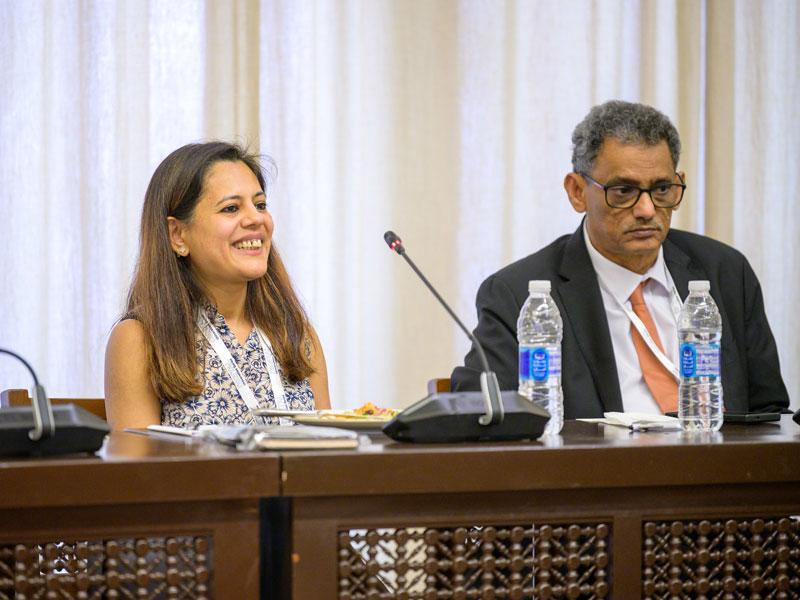The story of new technologies threatening the way we teach and learn is nothing new. Once it was the scientific calculator, today it is generative AI. But where generative AI is uniquely challenging is the breathtaking pace of its evolution and how radically it transforms how we access information and process tasks.
Generative AI has become a critical issue for higher education. At the 2024 THE Digital Universities Arab World event, leaders from the higher education sector in the region gathered for a round-table discussion – held in partnership with Turnitin – on how academic integrity could be secured in an era in which students can seek the counsel of large language models such as ChatGPT, with or without the blessing of their university.
Mariam Farouk, assistant lecturer of maternal and child health at Alexandria University, suggested that more upskilling opportunities are necessary for faculty and students to navigate the growing influence of AI. “I am a faculty member and I don’t know what AI tools to use academically, either for teaching or for research publication or reviewing papers,” she said. Bridging this knowledge gap should be a central plank of universities’ AI strategy.
With students already using generative AI, the round-table participants made the case for teaching them how to use it ethically and to encompass it in their teaching and assessment design. “The challenge is how we navigate this and how we develop assessments around AI instead of just penalising students for using generative AI,” said Sania Ashraf, director of graduate programmes at the University of Dubai.
“AI is here to stay and we might as well embrace it,” said Tizreena Ismail, manager of the Teaching and Learning Center at Ajman University. Ismail has integrated ChatGPT into her writing classes and teaches students its uses and limitations. “Students need to be more aware of how to use AI,” she said. “It’s a great tool to use for brainstorming and it can even help students with their language skills.”
The digitalisation of the campus gives faculty more data than ever before on how students engage with their assessments. However, there are gaps in skills and resources that need to be addressed. Turnitin is developing tools to offer educators more support, helping them identify writing that has been generated by AI. Tools such as Turnitin Draft Coach offer instant feedback to help students develop academic writing skills.
In the long term, novel assessment designs that negate the impact of AI alongside a culture of ethics will be higher education’s bulwark against academic misconduct. Empowering academics through training and granting them agency over how generative AI is used in teaching and assessment is key to building a culture of ethics.
As Mohamed Essam Mahmoud Khedr, dean of admission and registration for electronics and communications engineering at the Arab Academy of Science, Technology and Maritime Transport, believes, “integrity should be built into the student”. With the right digital tools and support, faculty can exploit the opportunities generative AI presents to enhance teaching while minimising its threat to academic integrity.
Find out more about Turnitin


comment